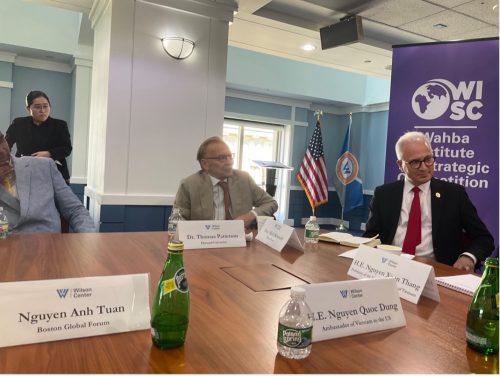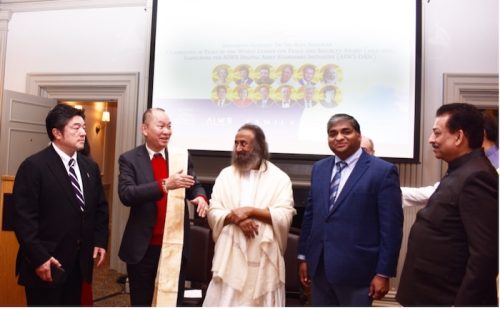Most industries already recognize that artificial intelligence (AI) has the potential to create significant economic value – but government support and regulation can also bring the benefits of AI to citizens all over the world.
I recently interviewed Trung Ghi and Abhishek Srivastava, who co-authored an article called “The global AI arms race – How nations can avoid being left behind” about the global landscape for AI, and which countries are leading and lagging in the AI arms race. They also shared important insight for decision-makers and world leaders who want to gain a competitive edge in this critical race for AI growth.
The ultimate goal for every nation should be growing a resilient economy, not just dominating within a specific region or attracting large corporations. Trung and Abhishek state:
“Artificial intelligence promises to have the same disruptive effect on today’s global economy as electricity in the 19th century…In the late 19th century, as electricity was being popularized, it became apparent that it required a new framework, as it was different to virtually every other commodity. Whoever mastered the engineering and economics of electricity would indelibly change the course of history….progress with transformative technologies was neither linear nor predictable. The benefits of electrification did not accumulate for early adopters, but for those who had identified how electrification could transform their societies within its existing context.”
AI is on track to transform countries and industries in a similar way. The countries that will reap the most benefit from AI are the ones that adopt strategies that build on a foundation of their existing local and global economic ecosystems.
Trung and Abhishek predict that although we’re currently in the midst of a global AI arms race, within the next 10 years, more and more AI applications will be ubiquitous and accessible to everyone – just like electricity in the 19th century.
Some countries will move faster than others, but AI will soon be quite pervasive – and that will translate into big economic benefits for countries that are paying attention and making the right moves in terms of AI.
The article was originally published at Forbes.
To support for AI technology and development for a positive world society, Michael Dukakis Institute for Leadership and Innovation (MDI) and Boston Global Forum (BGF) has established Artificial Intelligence World Society Innovation Network (AIWS.net). In this effort, MDI and BGF invite participation and collaboration with governments, think tanks, universities, non-profits, firms, and other entities that share its commitment to the constructive and development of full-scale AI for world society. This initiative is to develop positive AI for helping people achieve well-being and happiness, relieve them of resource constraints and arbitrary/inflexible rules and processes, and solve important issues, such as SDGs.










